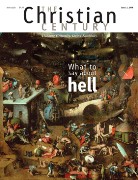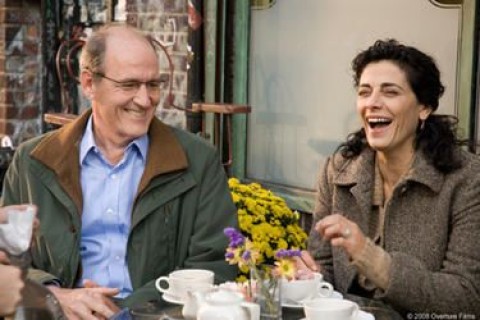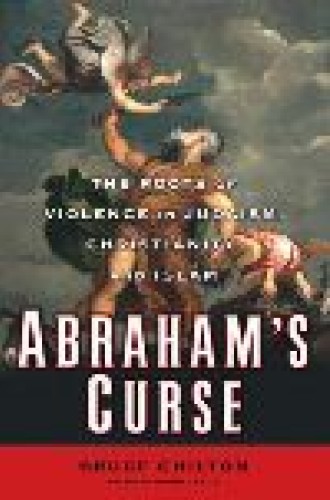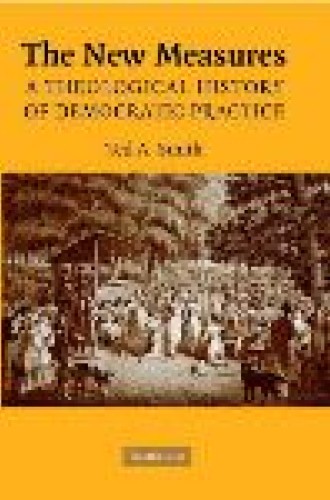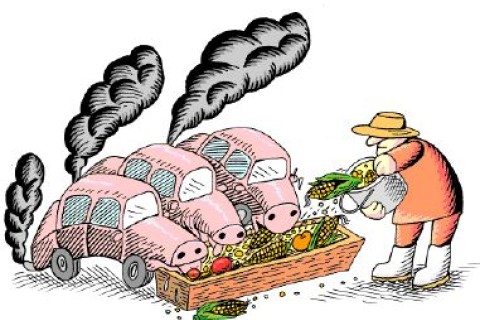Features
What to say about hell: A symposium
Hell is talked about cautiously, if at all, in mainline churches. Yet the notion of a divinely ordained place of punishment for the wicked after death is deeply embedded in the Christian imagination. How should we think and talk about hell? Why don’t we talk about it? We asked eight theologians to comment.
Prime-time torture: Jack Bauer as a hero of our time
In an episode of the Fox television drama 24, the hero Jack Bauer (played by Kiefer Sutherland) desperately needs information to protect national security. To get it, Jack knocks a man unconscious and ties him to a chair. Ripping the electrical cord out of a lamp, he applies the current to the man’s bare chest when he refuses to cooperate with Jack’s questioning. When Jack threatens to put the live wire into the man’s ear, the captive finally relents.
Imperial shrines: How presidential libraries distort history
When I was in college I took a course on Roman architecture and learned that temples were built throughout the Roman Empire to celebrate the emperors as gods. Sometimes these emperor-gods would have engraved on stone or bronze tablets a Res Gestae—a self-proclaimed list of “things achieved.” I remember feeling faintly superior to the ancient Romans; after all, we didn’t enshrine every president—the good, the bad and the large number in between—in temples. Or did we?
Being constructive: An interview with John Webster
One of the world’s leading Reformed theologians, John Webster, has focused his study on the works of Eberhard Jüngel and Karl Barth (he edited the Cambridge Companion to Karl Barth) and on the theological interpretation of scripture (a commentary on Ephesians is forthcoming). He is working on his own multivolume systematic theology. He cofounded (with Colin Gunton) the International Journal of Systematic Theology and is a coeditor of the Oxford Handbook of Systematic Theology.
Where do sermons go? Sunday-night reflection: Sunday-night reflection
The Visitor
The protagonist of The Visitor is Walter Vale, an academic who has retired from life after his wife’s death. A political economist at a small Connecticut college, Walter (played by Richard Jenkins) is no longer engaged with his students. He’s taken a reduced teaching load ostensibly to complete a book, but he’s not writing one. He makes a half-hearted effort at taking piano lessons—an attempt to stay close to the spirit of his wife, a pianist and teacher—but he finds something to object to in each of the teachers he hires: none can match his image of the woman he lost.
Rome
Rome is over. Not just the republic, but the TV show. Despite solid ratings and Golden Globe nominations, the popular cable series ended last year. HBO, the BBC and the Italian RAI had teamed up to offer two seasons of ten episodes each about ancient Rome. Now the series is available on DVD.
Gone are the tacky swords-and-sandals portrayals of the ancient world. The producers of Rome favor not only realistic battle scenes but British accents, graphic sex and characters to care about. They also brilliantly illustrate the world into which the Christian church emerged.
Books
Texts of terror
The New Measures: A Theological History of Democratic Practice
Departments
Cheerful news about hell: God's love comes all the way down
Wright misfires: Not every moment is a time for prophecy
Old refrain: All together now
The thing with feathers: A quotidian kind of hopefulness
News
Century Marks
Suspect nuns: About 12 nuns in their 80s and 90s were turned away from the polls in South Bend, Indiana, on May 6 because they don't have state or federal identification bearing a photograph. Indiana's photo ID law is the strictest in the country. It was challenged by the state's division of the American Civil Liberties Union, but the U.S. Supreme Court upheld the law in a decision issued shortly before Indiana's presidential primary (AP).


